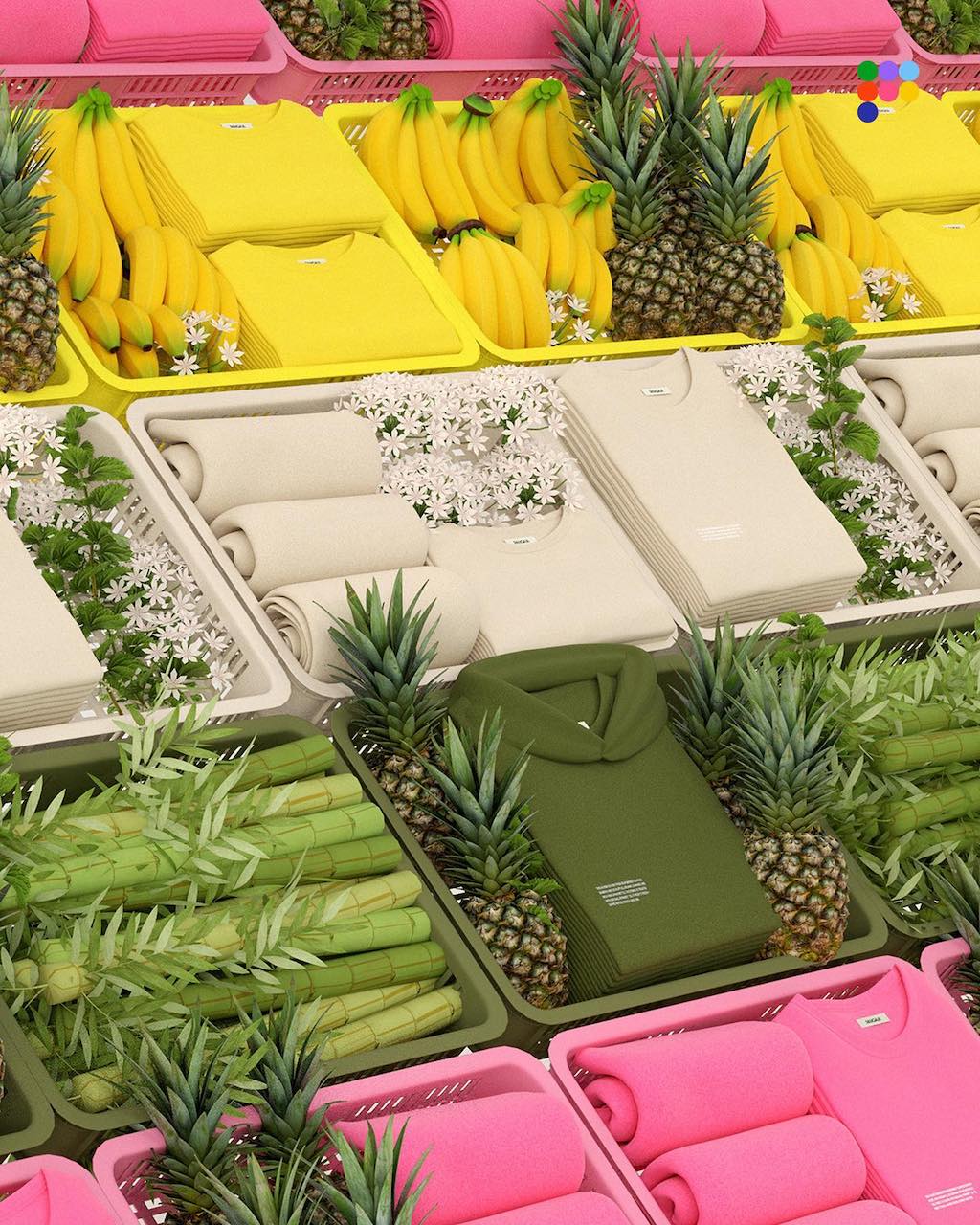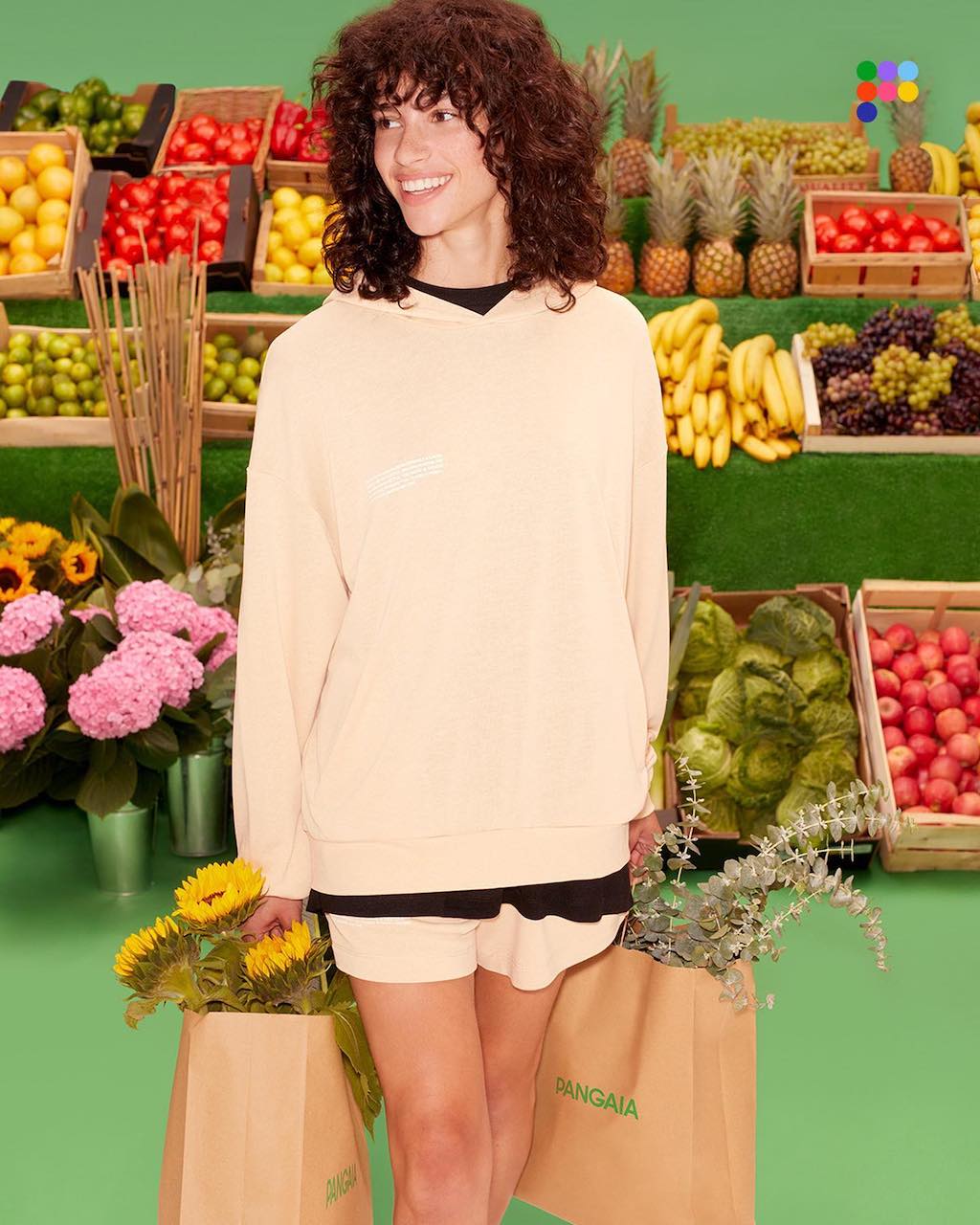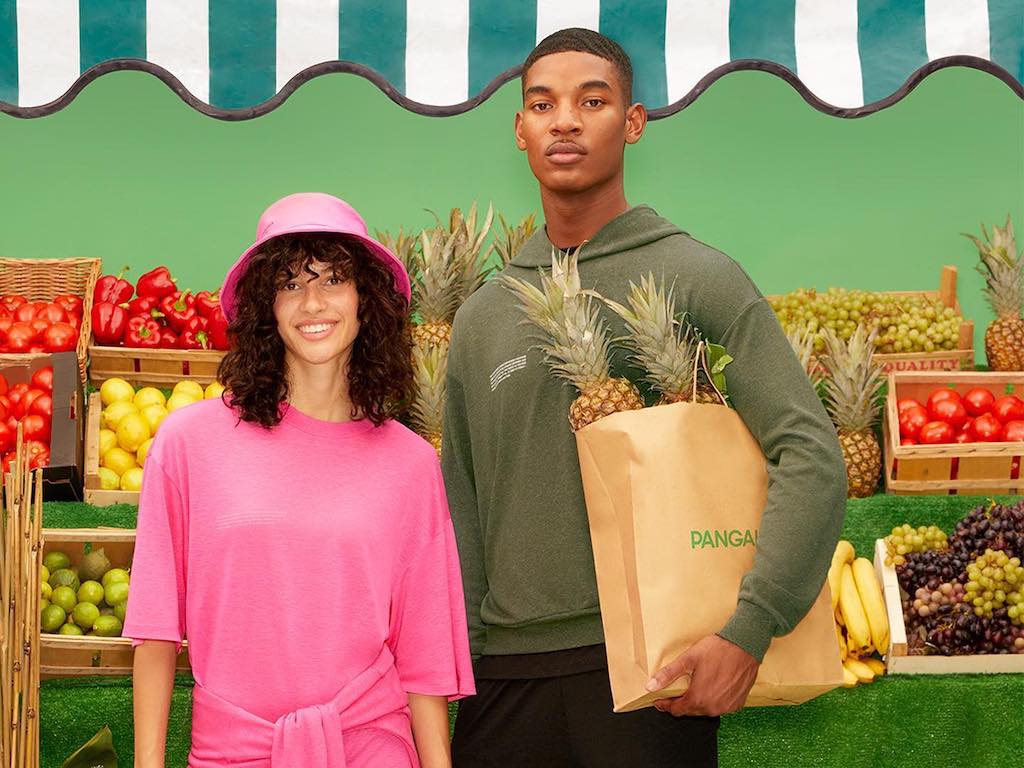3 Mins Read
Pangaia, the London-based sustainable fashion brand, has just added two new 100% bio-based alternatives to its material line-up. The new “PlntFiber” and “FrutFiber” fabrics are made from blends of plant and agricultural waste, and new products containing these fibres will feature QR-code “digital passports” so customers can see how sustainable their garments are.
London-based startup Pangaia has broadened its menu of sustainable fabrics with two new “PlntFiber” and “FrutFiber” offerings. The new materials are made entirely from plant and agricultural waste, and will be used as part of Pangaia’s goal to replace resource-intensive cotton and synthetic fabrics that are produced with fossil fuels. The company says that the materials are ‘renewable’ and ‘degradable’ but have yet to be tested for compostability.
PlntFiber and FrutFiber

FrutFiber is created from regenerative plant sources, mainly from bamboo lyocell, which makes up 60% of the material, while pineapple leaf and banana leaf fibre sourced from fruit production waste make up 20% respectively. Pangaia then treats these fibres with its proprietary peppermint oil, which helps keep the fabric fresh for longer. The end result is a mid-weight breathable jersey-like fabric, similar to classic cotton t-shirts, but bears a slight sheen.
PlntFiber, on the other hand, blends 60% bamboo lyocell with 20% Himalayan nettle fibre and 20% seacell eucalyptus lyocell with seaweed, to create a lightweight loopback fleece that feels like cotton but contains none of it. The blend is used in Pangaia’s new collection of hoodies, tracksuits, and shorts, while the PlntFiber is being used to make t-shirts, dresses and shorts.
Displacing resource-intensive materials
All of these plant-based sources are sustainably grown, meaning that they require no pesticides, fertilisers or irrigation to grow. The use of pineapple leaves and banana leaves, in particular, diverts food waste as well, as these leafy parts of the fruit crop are often tossed into the incinerator or sent to landfills instead of valorised as a raw material.
Products that Pangaia will make using its new plant and fruit-powered materials will bear “digital passports”. It has partnered with startup Eon to unveil these QR codes, which customers can scan to learn more about the origins of their garments, the materials they are made from and their environmental footprint.

Pangaia says that having released its initial collection using the fibres, it plans to make its proprietary blends available to other brand partners, in a bid to help the industry shift away from non-bio-based materials, such as non-organic cotton, which requires 10,000 litres of water to produce each kilogram, or synthetic nylon, made using high-emissions petrochemicals.
Nylon, being a synthetic polymer, is also non-biodegradable, making it an especially polluting material that is exacerbating the global waste crisis. Startups like Genomatica have produced bio-based alternatives for nylon, and it claims that its 100% plant-based nylon made from plant waste feedstocks lowers the environmental impact by 93% compared to its conventional counterpart.
When asked by Green Queen Media about the biodegradability of PlntFiber and FrutFiber, Miles Freeland, Pangaia’s head of global communications, said that both materials are “100% made from bio-based materials including semi-synthetic cellulosics and natural fibers” that are “inherently renewable and biodegradable”. The seacell lyocell used in FrutFiber, for instance, has received compostable certification from Vincotte.
But Freeland said that the brand “cannot make any formal claims on this front” in terms of biodegradability or compostability, as formal tests have not been conducted for both materials.
All images courtesy of Pangaia.



